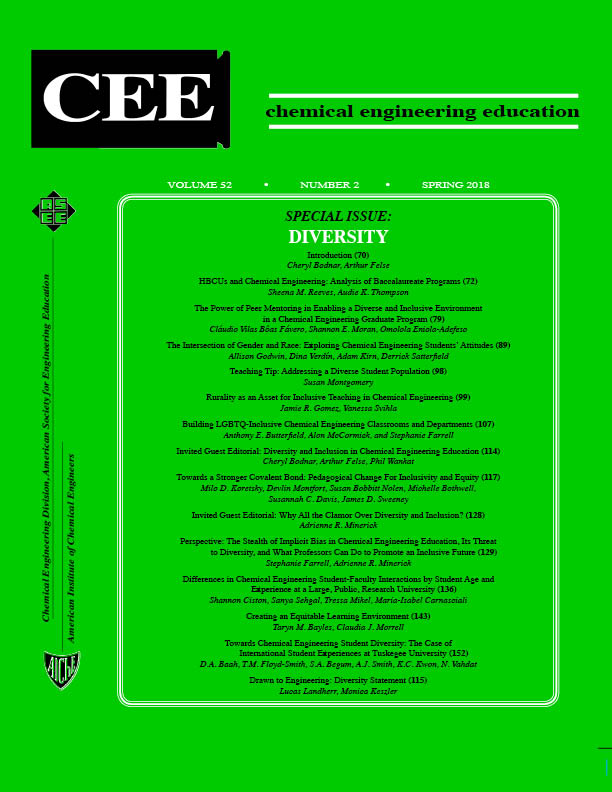The Power of Peer Mentoring in Enabling a Diverse and Inclusive Environment in a Chemical Engineering Graduate Program
Keywords:
peer mentoring, diversity, inclusivity, graduate programAbstract
The Chemical Engineering graduate program at the University of Michigan implemented a peer mentoring program for PhD students, with the goal of fostering department inclusivity and improved academic outcomes through facilitated social and academic activities in diverse, small groups. In this article, we detail the peer mentoring program implementation and the program’s measured impact on participating mentees and mentors.


